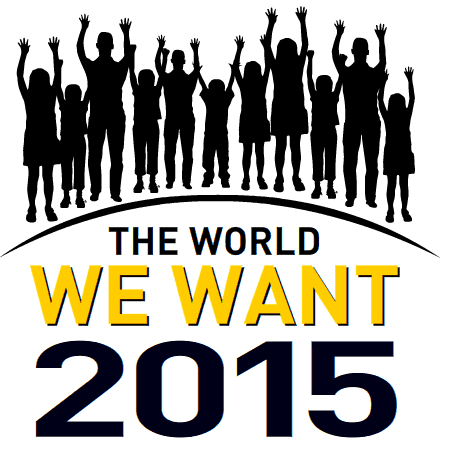 The Post 2015 Global Thematic Consultation on Education continues with its fourth and final topic, Governance and Financing of Education, running until 24 February, 2013. This process opened on 10 December 2012 with an E-discussion on Equitable Access to Education and moved on to the topic of the Quality of Learning followed by Global Citizenship, Skills and Jobs. These three discussions are now closed, and the report for the first consultation is available now.
The Post 2015 Global Thematic Consultation on Education continues with its fourth and final topic, Governance and Financing of Education, running until 24 February, 2013. This process opened on 10 December 2012 with an E-discussion on Equitable Access to Education and moved on to the topic of the Quality of Learning followed by Global Citizenship, Skills and Jobs. These three discussions are now closed, and the report for the first consultation is available now.
These open online consultations are part of a series of four thematic e-discussions of the Education Global Thematic Consultation on the World We Want platform. The UN jointly with civil society is gathering views from people around the world and building a collective vision on priorities for a Post-2015 framework. Opinions gathered will inform the UN and world leaders to plan a new development agenda. Each of the education e-discussions will run for 2 weeks and we want to ensure as broad and diverse consultation as possible.
Consultation Four
This fourth consultation is led by Nicolas Reuge, UNICEF Regional Office in WCARO; Megumi Watanabe, UNESCO; Aleesha Taylor, Open Society Foundations; Atussa Ziai, HUMAN / BMZ, and; Robert Prouty, Global Partnership for Education.
This Discussion will run until 24 February, 2013. Go directly to the discussion page and participate. If you have not registered yet, please go to the Education Global Consultation web page.
To kick off this third E-Discussion, the Moderators invite you to reflect on the following:
One of the important findings of the e-discussion on equitable access to education is that governments had to do better in financing education with the allocation of “sufficient funds towards achieving universal access to comprehensive education” and the introduction of “policies that facilitate investment in education by private sector partners”. Some contributors also saw a greater role for financial assistance in education, with a plea for donors to allocate at least 10% of their funds to the sector. Many contributors of the discussion on access to education also identified education governance as a key factor. Shortcomings in this regards are often attributed to “political interference, political agenda, personal interest, and conflict of interest” by political leaders. It was claimed that “improving governance and accountability is of utmost importance”.
Since 1999, faster economic growth, better revenue generation, increased aid levels and stronger political commitment have all helped increase real spending on education in low income countries by an average of 7.2% a year. Despite increased financial allocations from national governments to education, many of the poorest countries still face major shortfalls in the resources needed to achieve education goals. Even though aid to basic education increased in 2009, it remained unchanged at US$5.8 billion in 2010. The experience of the last decade shows that increasing the financing of education can go a long way towards meeting education goals but just as the numbers of children out of school are stagnating, there are worrying signs that donor contributions may also be slowing down. Total aid decreased in real terms in 2011 for the first time since 1997. At an estimated US$683 million per year, the contributions of private foundations and corporations to education in developing countries are equivalent to just 5% of aid. Increased national and donor financial commitment is one part of the equation; more effective aid is the other. It is vital to explore the potential of new sources to fill financing gaps, to increase education’s share of the national budget and to strengthen the way in which aid money is coordinated and spent.
When it comes to public sector governance in education, the overall problem is an inefficient and ineffective public service. Some of the specific challenges include: fragmented institutional structures (unclear or overlapping roles & responsibilities); a centralized system (or unfinished decentralization process); lack of linkages between planning & budgeting; weak accountability systems; inequitable spending. On the one hand, the governance issue reinforces the lack of funding in education because the money is not spent in a meaningful way (“value for money”). On the other hand, more funds couldn’t even be absorbed due to weak governance structures and capacities. Increasing funds without improving governance therefore bears the risk of adding to the level of corruption.
The equity dimension deals with the way public resources for education are used. Due to the disparities in terms of access, the individuals from the poorest quintile benefit significantly less from public spending on education than those from the wealthiest quintile. On average in Sub-Saharan Africa, due to shorter studies, the poorest quintile benefit 7.6 times less than the wealthiest quintile. Nevertheless it varies a lot across countries: 2 times less in Djibouti, 2.8 in Burkina Faso, 10.4 in Sierra Leone, 14.6 in Niger up to 18.5 in Mali.
